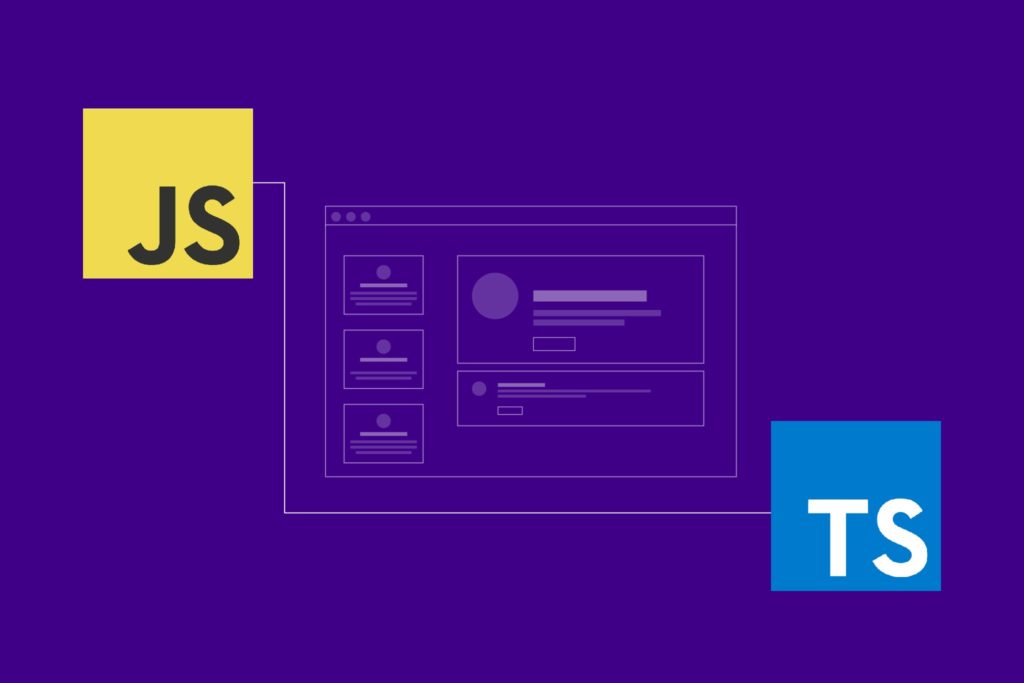25 April 2019
Why did we convert our open-source tool from JavaScript to TypeScript?

At The Software House, the story of converting from JavaScript to TypeScript started about two years ago with our first open-source project called Kakunin. Right away we focused on code quality, extendability and good practices. Even though we used untyped language (JavaScript) for it, we were still able (to some extent) to keep clean architecture. But at some point, we decided that it is a time for a much bigger change – converting from JavaScript to TypeScript. So if you want to learn how to painlessly go through this process in your company, read on!
But at some point, we decided that it is a time for a much bigger change – converting from JavaScript to TypeScript. So if you want to learn how to painlessly go through this process in your company, read on!
JavaScript difficulties
There is one major downside of untyped language like JavaScript. Yeah, you guessed it – the lack of types. It’s not a problem for a single person project, where you are the only author and nothing will surprise you. It was the same for Kakunin, except there was the two of us. 😉
We both knew each line of code in our library. We knew the type of each parameter. We knew what could be passed to each method and what type the result will be.
The problem became obvious when the team started growing. More and more people started to add custom code, create pull requests and ask a single most popular question – why it doesn’t work if I pass string here? We had to deal with it immediately!
Why do we need types?
Let’s imagine a simple function.
It works, yet we don’t know which result is the correct one?
Is this function for strings concatenation or maybe misnamed method for sum calculation? It’s hard to tell.
Even though this a very simple case, it shows how important types are – especially in JavaScript where a lot of things might be converted on the fly without our knowledge.
Another good example is strategy pattern implementation in JavaScript.
Without types, we need either good documentation or knowledge about the code. What methods should be implemented by vehicle creation strategy? What fields we have in params for create method? VehicleFactory requires an array of creation strategies, yet once again – could a new developer pass anything there? Can you see where are we going with this?
Types make our code easier to understand for others. We don’t need to care so much about documenting every detail of code, just to make sure someone won’t pass a mistyped variable or forgets to implement a required method. What’s more, we can skip some of the type checks, even unit tests that were used specifically for testing a types correctness. And so we had to make a tough choice…
Convert to TypeScript or Flow?
When it comes to types in JavaScript world, there are two popular choices. Facebook’s Flow and Microsoft’s TypeScript. Both of them have pros and cons.
TypeScript is fully based on structural typing.
It means that two different classes are equal as long as their structure is the same. For example:
It will return true, as long as all properties are public (not cool!). It’s a little bit trickier with private fields and inheritance.
Two classes with private fields are not the same, even if they have the same structure (cool!). But if one of them is extending other, then once again they are the same (again: not cool!). On the other hand, we have Flow. It actually works pretty similar to TypeScript, with one important difference – classes are a nominal type. It means, two classes are the same only if they are exactly the same instance (cool!).
On the paper, Flow looks better than TypeScript (at least from a technical point of view), but there is one more thing we had to consider before we would give it a go – typing for external libraries. There’s no doubt, that TypeScript has a bigger community than Flow. So naturally, there are a lot more contributors to TS typings than to Flow ones. And this is something that matters!
At TSH we decided that we could live without nominal typing (even though I am a big fan of it), but we cannot without good support for most popular libraries.
Because of that, we ended up with TypeScript for most of our open source and commercial projects.

Converting JavaScript to TypeScript – the final effect
How hard it is to convert your code from JavaScript to TypeScript? Actually, it’s surprisingly easy, especially when you build your code around design patterns. Let’s go through a few examples. This is our form handler – a special handler that takes responsibility to find suitable handler to fill specific form field with a value.
This is how it looks in plain JavaScript:
And this is the same code in TypeScript:
It looks pretty much the same. We moved away from objects to classes, we added types where necessary and the rest of them are taken care by TypeScript itself – yeah, TypeScript is pretty good in resolving types on its own.
The only problem we had was a large code base (we’re talking 19000 lines of code, people! 😱) but this could be mitigated by splitting it into multiple smaller chunks. We started with things related to forms, then moved to generators etc.
It took about 56 hours for a single developer to add types and interfaces to our JavaScript code and we love it!
Do we recommend it to you?
Of course! All of ours node.js open-source libraries are developed using TypeScript and I’m pretty sure it will be the same for our upcoming projects.
In exchange, we’ve got a code that is clear for everyone. No more documentation for methods parameters. No more silly mistakes with a passing number instead of a string. All of this was possible because of clean architecture and test coverage (we have both units, but also functional tests). A fun fact: we do test Kakunin with Kakunin. Yes, for reals!
State of Frontend 2022 report is out now!
Read it online or download a free copy 📊👩💻
See what technologies are still hot, what lose their impact, and what rising stars we expect in the foreseeable future.

